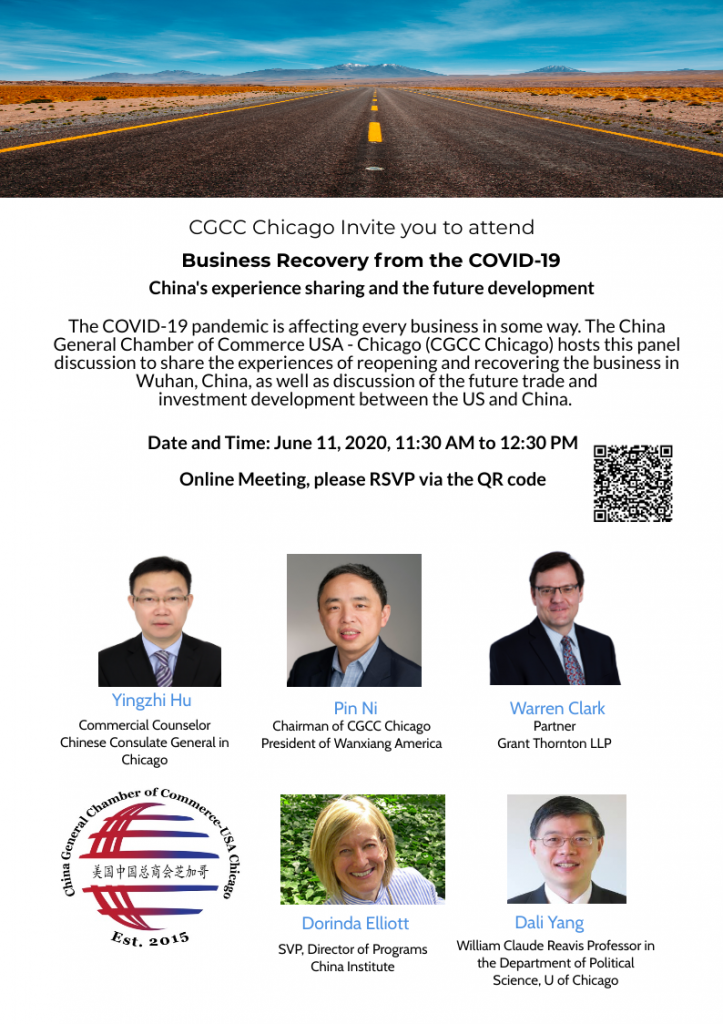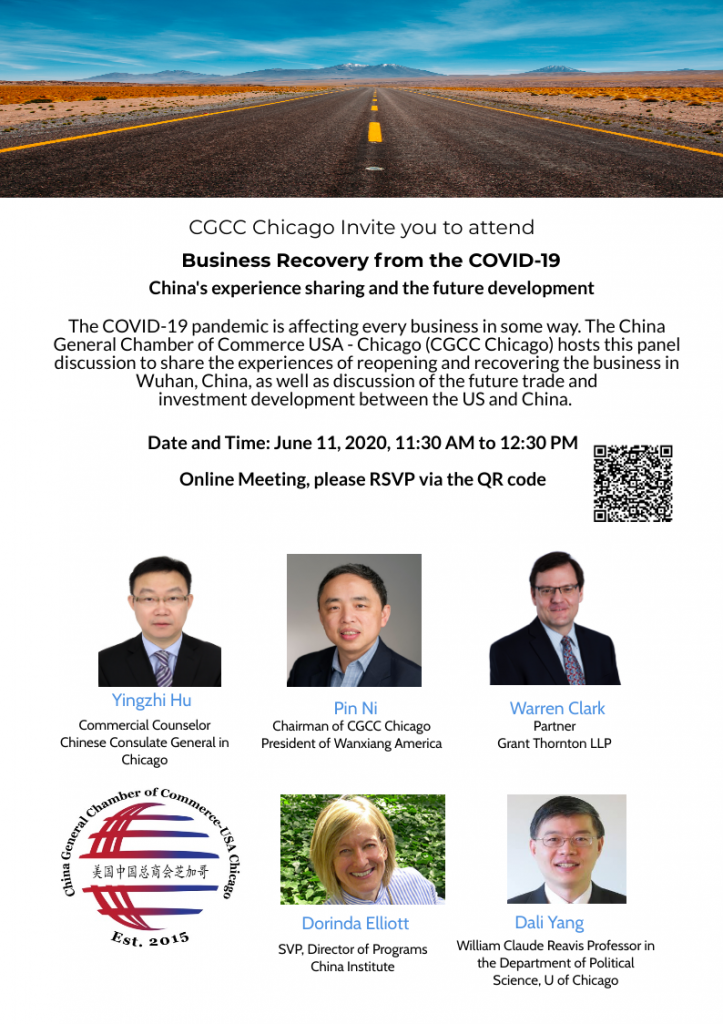
The establishment of a new US-China economic relationship during the epidemic and the economic recovery after the epidemic are issues of great concern to all sectors of society in China and the United States. CGCC-Chicago held a webinar on June 11, 2020, with the topic of "Business Recovery During COVID-19".

In order to help members recover from the economic difficulties as soon as possible, CGCC Chicago invited Yingzhi Hu, Commercial Counselor of the Chinese Consulate General in Chicago; Pin Ni, President of CGCC Chicago and President of Wanxiang American Corporation; Ms. Dorinda Elliott, Project Director and Senior Vice President of the China Institute; William Clark Reavis, the Senior Advisor for International Affairs at the University of Chicago; Dr. Yang Dali, the chair professor of the Department of Political Science Department at Princeton University; Warren Clark, Partner of Grant Thornton LLP, and others to share their insights.
The webinar explored the opportunities and challenges of enterprises during the epidemic, made practical suggestions for the future development of enterprises. Discussions at the meeting include: What did the guests like about China's economic recovery? How will the increased tension between the United States and China affect corporate recovery? How can companies avoid difficulties? What measures has the government taken to encourage businesses and help them overcome their issues? Is it a good opportunity for US companies to invest in China? Discussions on the topics such as whether China’s investment opportunities are worth the risks were highly appreciated by the participants and caused a heated discussion among the audience.
Behind the complicated relationship between China and the United States is also a critical period for the integration and optimization of industry. Although the difficulties faced by multinational businesses continue to intensify, the long-term prospects of the business between China and the US is still very high. As the two superpowers in the world, China and the United States should "cooperate for mutual benefits, while avoiding conflicts". Win-win cooperation is an urgent requirement of the peoples of the two countries. It is the requirement of the times. We would like to look forward to it together.
CGCC-Chicago will, as always, devote itself to the cause of promoting the development of US-China economic and trade relations, maximize the role of ties, and contribute to the mutually beneficial development of enterprises of the two countries. We will continue to launch seminars, symposiums, and lectures to provide a professional platform for exchanges and cooperation between the Chinese and American companies, helping companies analyze market prospects, lay out future businesses, and achieve new development.
About China General Chamber of Commerce-USA
Founded in 2005, the China General Chamber of Commerce – USA (“CGCC”) has been recognized as the largest and most influential non-profit organization representing Chinese enterprises in the U.S. Its membership consists of more than 1,500 Chinese and U.S. companies, 54 of which are ranked on the 2019 Fortune Global 500. CGCC’s mission is to create value, generate economic growth, and enhance cooperation between the U.S. and Chinese business communities. CGCC conducts extensive research and provides a broad range of programs, services, and resources to its members and key stakeholders in an effort to foster the mutual understanding, trust, and engagement between China and the U.S. As of 2019, CGCC’s Chinese member companies have cumulatively invested over $123 billion, employ more than 220,000 people, and support over one million jobs throughout the United States.
CGCC is a national organization and includes CGCC-New York (CGCCUSA-HQ), CGCC-Chicago, CGCC-Houston, CGCC-Los Angeles, CGCC-San Francisco and CGCC-Washington D.C.
About CGCC Foundation:
Established in 2014, CGCC Foundation is a 501(c)(3) tax-exempt organization. The mission of CGCC Foundation is to deepen mutual understanding and cooperation between the United States and China through research, public charity and engagement in economic, cultural and social exchanges.